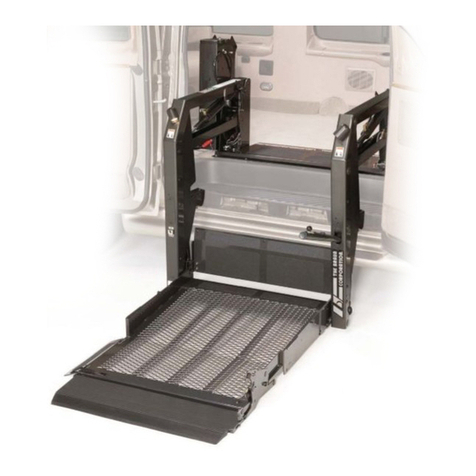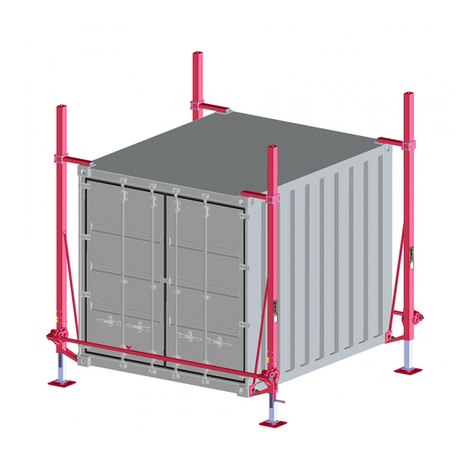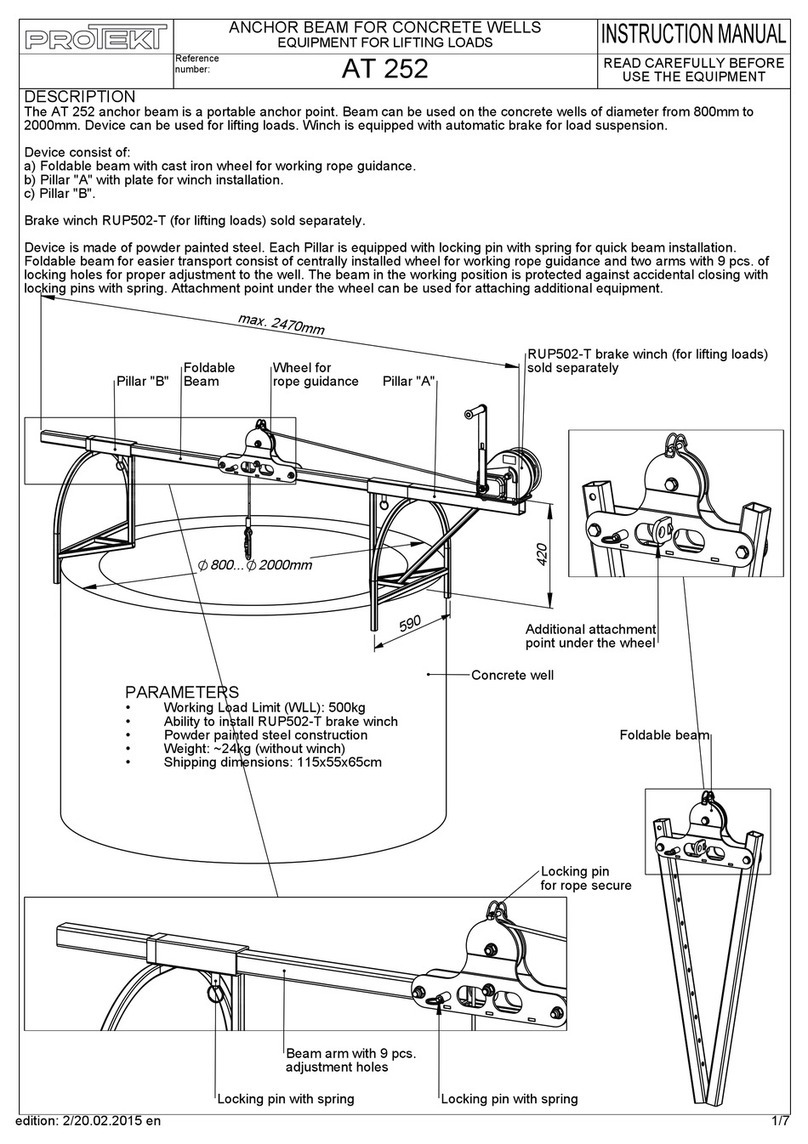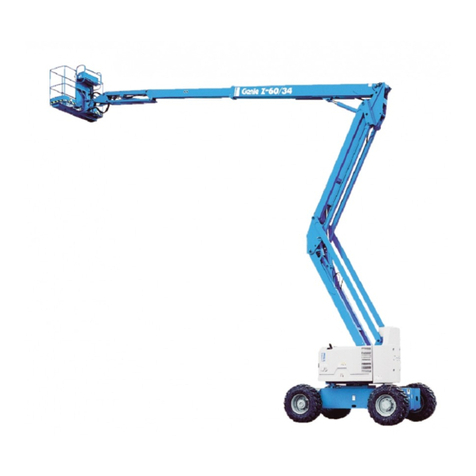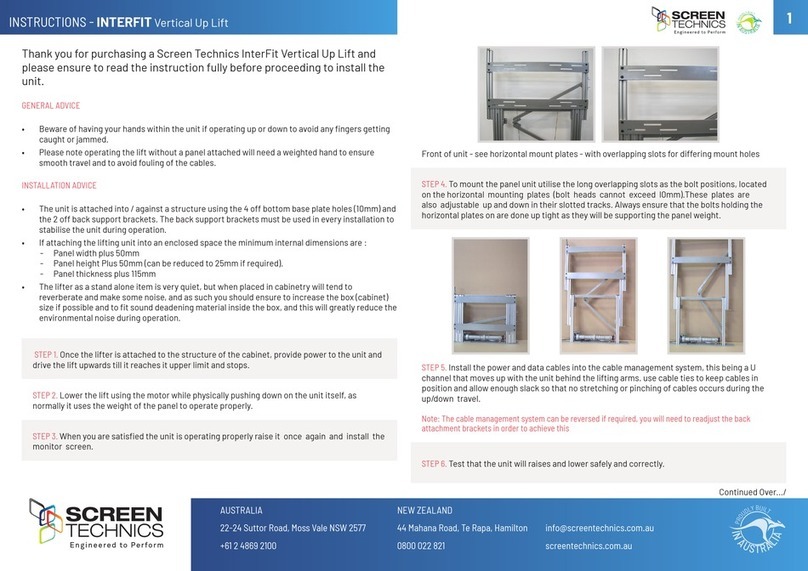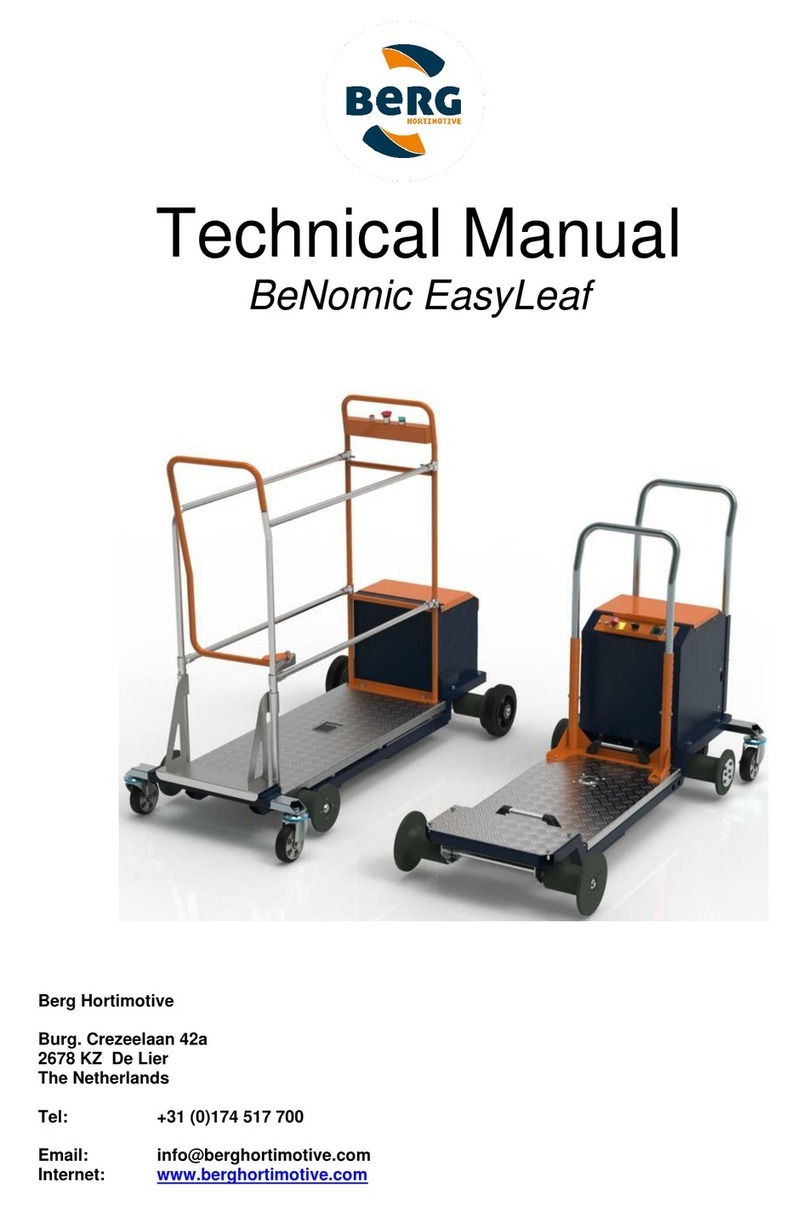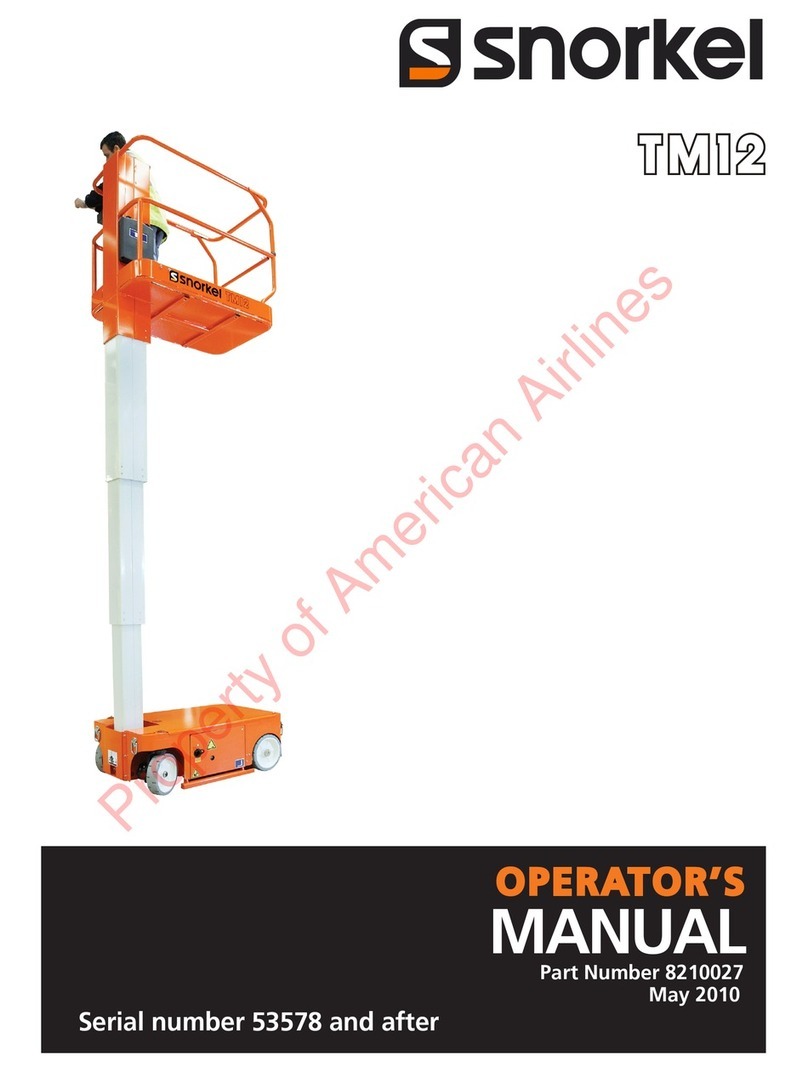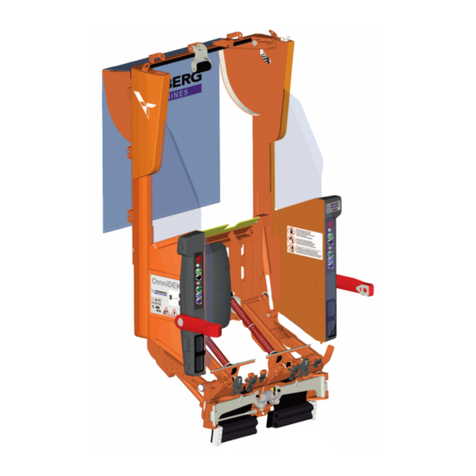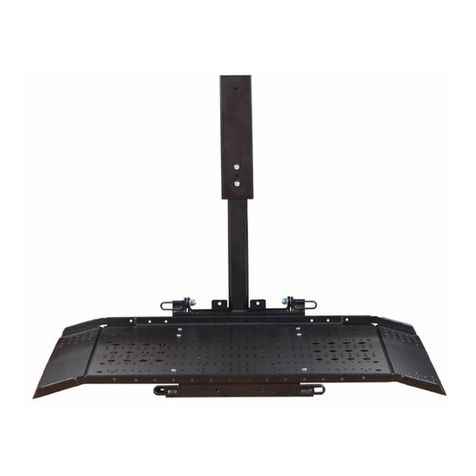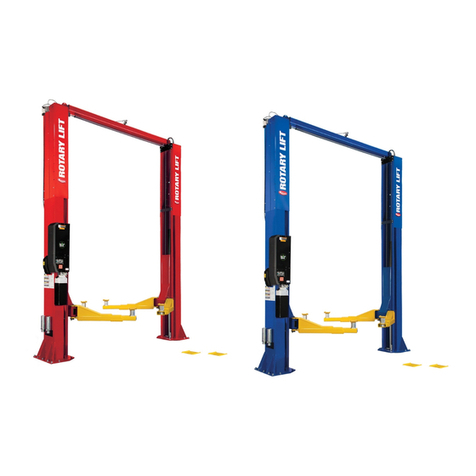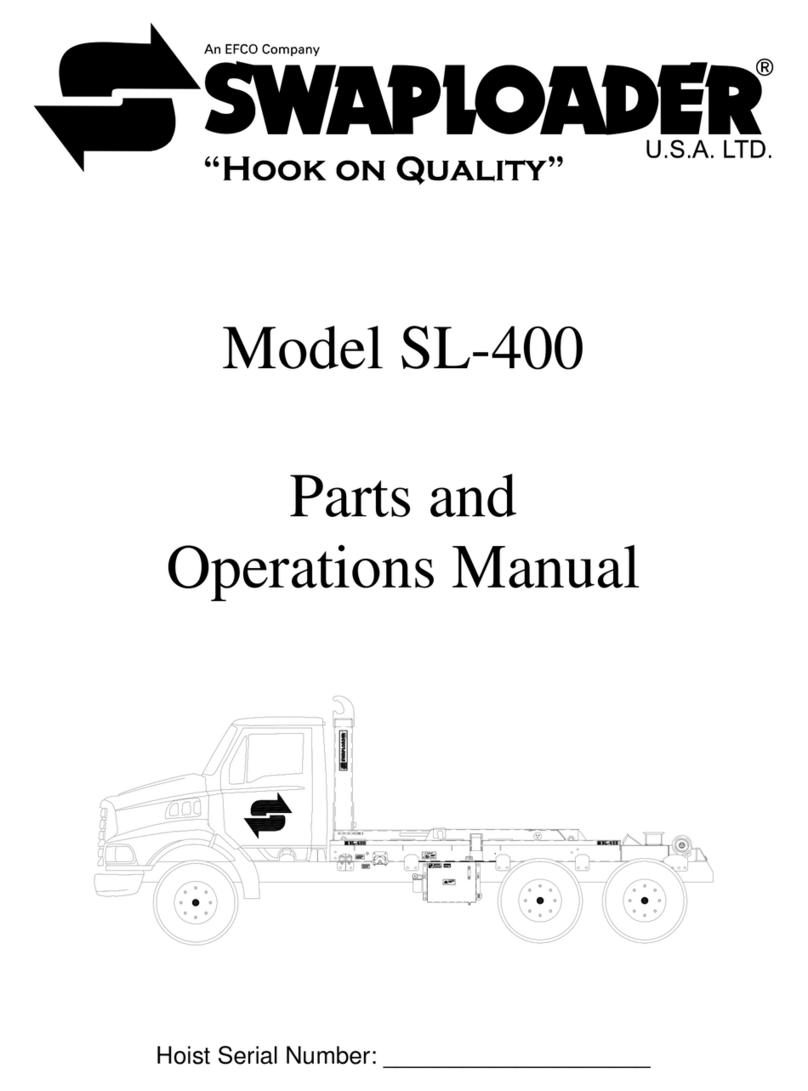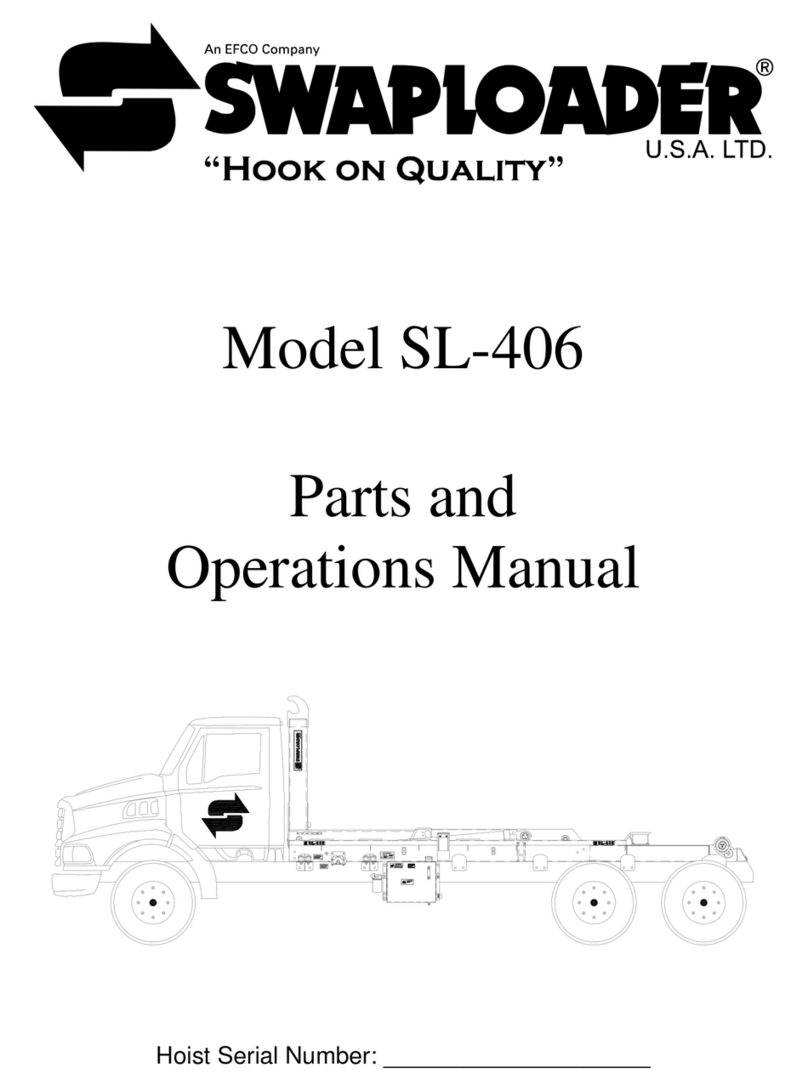
SectionI:Introduction
1.0.INT.SL-518
SWAPLOADER, U.S.A., LTD.
1800 N.E. BROADWAY, DES MOINES, IOWA 50313
LIMITED WARRANTY STATEMENT
Effective September 1, 2009
SwapLoader U.S.A., Ltd., (SwapLoader), warrants to the original purchaser of any new SwapLoader product sold by
an authorized SwapLoader distributor or service center, that such products are free of defects in material and
workmanship. All SwapLoader products with an original factory invoice date of September 1, 2009 or later qualify for
warranty as defined in this Limited Warranty Statement.
Repair or replacement of parts on SwapLoader products are covered under warranty for forty-eight (48)
months from date of Retail Sale by an authorized SwapLoader Distributor or service center, subject to any
applicable federal, state or local taxes, and not to extend beyond sixty (60) months from the original factory
invoice date. SwapLoader will, at its discretion, either repair the defective parts or replace them with
equivalent parts, subject to the conditions below.
Labor charges authorized by the SwapLoader Warranty Department are covered under warranty for a period
of twelve (12) months from the date of Retail Sale by an authorized SwapLoader Distributor or service
center, and not to extend beyond twenty-four (24) months labor from the original factory invoice date.
Warranty Registration Card must be returned within 15 days of Retail Sale of SwapLoader hoist to
SwapLoader, Des Moines, Iowa. If unit has not been registered, then the warranty start date will revert to the
original factory invoice date. Warranty Registration is the ultimate responsibility of the owner and may be
accomplished by the completion and return of the product registration form included in the SwapLoader hoist
manual. If the owner is not sure that product registration is completed, then SwapLoader encourages them
to contact us at 888-767-8000 to confirm.
Defective parts must be reported to SwapLoader within 30 days of discovery on a SwapLoader warranty
claim report form. A Return Goods Authorization (RGA) number must be issued to the claiming party prior
to the return of any defective part to be considered for warranty.
Warranty service must be performed by a distributor or service center authorized by SwapLoader to sell
and/or service SwapLoader products, which will use only new or remanufactured parts or components
furnished by SwapLoader U.S.A., Ltd. SwapLoader will invoice the distributor or authorized service center
for the replacement parts and freight. Upon completion of the repair any defective parts to be returned for
warranty consideration must be returned freight prepaid with a copy of the SwapLoader issued RGA form
and a copy of the completed warranty claim report form. Upon evaluation of the returned parts, once
warranty is approved, credit will be issued to the appropriate account for the approved warranty costs which
may include parts, labor, and/or freight.
The warranty covers only defective material and workmanship. It does not cover depreciation or damage
caused by normal wear and tear, accident, mishap, untrained operators, or improper or unintended use. The
owner has the obligation of performing routine care and maintenance duties as stated in SwapLoader’s
written instructions, recommendations, and specifications. Any damage resulting from owner/ opera-tor
failure to perform such duties shall void the coverage of this warranty. The cost of labor and supplies
associated with routine maintenance will be paid by the owner.
In no event will SwapLoader, the SwapLoader distributor or any company affiliated with SwapLoader be
liable for business interruptions, costs of delay, or for any special, indirect, incidental or consequential costs
or damages. Such costs may include, but are not limited to loss of time, loss of revenue, loss of use, wages,
salaries, commissions, lodging, meals, towing, hydraulic fluid, travel, mileage, or any other incidental costs.
SwapLoader is not responsible for the removal or replacement of accessories (fenders, toolbox, etc.).
Warranty shall not apply if the equipment is operated at capacities in excess of factory recommendations.
Warranty is expressly void if the seal on the main relief control valve has been broken.
SwapLoader will ship the replacement part by the most economical, yet expedient means possible.
Expedited freight delivery will be at the expense of the owner.
Warranty is expressly void if serial number plate or stamping is tampered with.
IT IS EXPRESSLY UNDERSTOOD AND AGREED THAT THERE ARE NO WARRANTIES MADE BY THE MANUFACTURER OR
ITS AGENTS, REPRESENTATIVES OR DISTRIBUTORS, EITHER EXPRESSED, IMPLIED, OR IMPLIED BY LAW, EXCEPT
THOSE EXPRESSLY STATED ABOVE IN THIS STANDARD LIMITED WARRANTY AGAINST DEFECTS IN MATERIAL AND
WORKMANSHIP. THE MANUFACTURER AND ITS AGENTS, REPRESENTATIVES AND DISTRIBUTORS SPECIFICALLY
DISCLAIM ANY IMPLIED WARRANTY OR MERCHANTABILITY OR FITNESS FOR ANY PARTICULAR PURPOSE.

